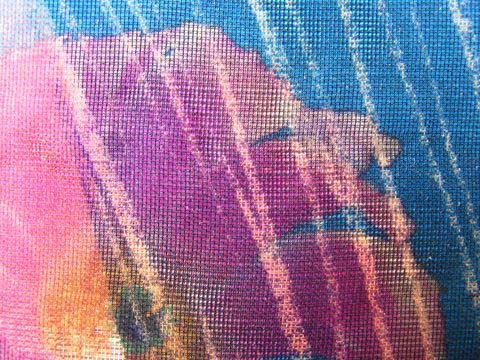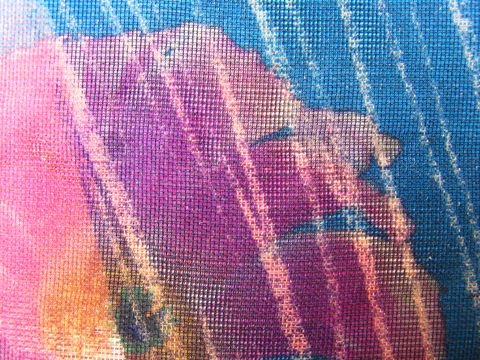Consciousness, Unconscious Mind & Neuroscience

 This is a brief blog post on a couple of quotations relating to the whole mushrooming area of the science of consciousness and the unconscious mind, as it is being approached within the rapidly expanding new experimental fields of neuroscience and cognitive science. These fields are growing in a rapid new ways, and shedding a great deal of new light on the view of the human psyche which CG Jung wrote about in his works.
This is a brief blog post on a couple of quotations relating to the whole mushrooming area of the science of consciousness and the unconscious mind, as it is being approached within the rapidly expanding new experimental fields of neuroscience and cognitive science. These fields are growing in a rapid new ways, and shedding a great deal of new light on the view of the human psyche which CG Jung wrote about in his works.
One of these quotations I have already used in a comment on a previous blog post. However, I feel that it is important enough that it should be featured in its own posting. The other is a very complementary quotation from CG Jung.
“Most of Our Thought is Unconscious”
Here is the interesting neuroscience quotation. It seems to me to be very challenging in what it suggests that modern neuroscience research is showing about the fundamental nature of the brain and the psyche:
Cognitive science…the scientific discipline that studies conceptual systems…has made startling discoveries. It has discovered, first of all, that most of our thought is unconscious, not in the Freudian sense of being repressed, but in the sense that it operates beneath the level of cognitive awareness, inaccessible to consciousness, and operating too quickly to be focussed on…. To understand even the simplest utterance, we must perform… incredibly complex forms of thought automatically and without noticeable effort below the level of consciousness. It is not merely that we occasionally do not notice these processes; rather, they are inaccessible to conscious awareness and control.
Lakoff, George and Johnson, Mark, Philosophy in the Flesh: the Embodied Mind and its Challenge to Western Thought, (New York: Basic Books, 1999) pp. 10-11
Jung: “Consciousness is Like a Surface or a Skin…”
There is very strong evidence that Jung anticipated these discoveries of neuroscience in the way that he conceived of the human psyche. In the 1930s, Jung had an intuition of the human psyche that now seems remarkably akin to the insights emerging from the frontiers of neuroscience:
Consciousness is like a surface or a skin upon a vast unconscious area of unknown extent… we need a laboratory with very complicated apparatus in order to establish a picture of that world apart from our senses and apart from our psyche… very much the same with our unconscious — we ought to have a labouratory in which we could establish by objective methods how things really are when in an unconscious condition.
Jung, C.G., Hull, R.F.C., trans., ” Tavistock Lectures: Lecture 1″ in Collected Works, Vol. 18, (London: Routledge Kegan Paul, 1977) par. 11
Surprising as it would seem to observers in the 1930s, the understanding of consciousness and the unconscious mind which has started to emerge in cognitive science and neuroscience has many affinities with the conceptions of C.G. Jung. As paradigms shift, in many ways, Jung’s understanding of the psyche and of what it is to be human seem to have grown in stature and explanatory power.
Are You Aware of Your Unconscious Mind?
Have you ever had experiences where you have become strongly aware of the existence of your unconscious mind? Sometimes such experiences can be dreams, or they can be other psychological events in which you’re just very aware that something other than your everyday waking consci0us mind is at work. I would be very interested to hear about your experiences: please leave a comment below, or if you prefer, send me an email!
Wishing you rich growth in your experience of all that you are, on your personal journey to wholeness,
[cta]
PHOTO CREDIT: © Oleg Nesterkin | Dreamstime.com
© 2011 Brian Collinson


jamenta
I admit I have been intrigued all my life with the unconscious, and have read a good amount of material related to it’s study – most especially work done by the Society of Psychical Research, followed by the work of Carl Jung and other analysts.
And yet even now I can say I have never really dived in fully – only stayed in the shallow end of the pool.
Perhaps in part due to the difficulty of analyzing dreams, and/or understanding how outer events are related to inner events in a daily synchronistic fashion.
Perhaps due to the unseen nature of the unconscious, my own focus on ego because of the society I have grown up in – the work/production life that so many of us are fated to live out in a world where so many humans are exploited for 40+ hours a week of labor – so that the few can continue to be very wealthy.
Perhaps still just lacking a fundamental faith that something really is to be gained by the effort required to explore the unconscious.
I have grown a bit weary too – as the constraints of real life have worn me down. Then to spend additional energy on the often recondite work of exploring the unconscious often feels to much a demand on my time and energy.
How to resolve this conundrum I am unsure – perhaps the unconscious itself might guide me to an energetic answer.
Brian C
Thanks very much for your comment, John. It’s certainly true that exploring one’s own unconscious can be something that demands a considerable amount of perserverence and determination. I think that many people find Jungian work somewhat more demanding than other kinds of psychotherapy for just this reason.
But sometimes, one finds that it is not only the unconscious which you have been seeking. Sometimes it becomes apparent that the unconscious is also seeking you. That may seem like a bit of a droll paradox, but let me try to say what I mean. I have one event that I see as a particularly definitive watershed in my own experience. I think that I had been “searching for the unconscious” in a lot of ways for a very long time. The particular experience that I had had something of a crisis character, but what it did, above all, was show me that I couldn’t keep up the kind of effort to “be somebody”, in accordance with my pre-conceptions of who it was that I was supposed to be. I genuinely had to “let go”, and let who I really was take the place of my social self. This is only my unique experience, I realize, and it may not fit your particular situation. But I think, for us Western men (men in particular, but also women!) , laying down our arms and recognizing that there is something “running the show” other than the ego, can be a very demanding thing. Yet, oddly, it can also be a tremendous liberation.
Wishing you all the very best, John, and thanks very much for your comments!
Brian C
John, I also sent you a further response to your comment via email, for purposes of respecting privacy and confidentiality. If you would kindly take a look at ti, and let me knwo what you think, Iwould be most grateful — thanks! ~Brian C.
Gwynne
From Civilization In Transition Volume 10 CW “The role of the unconscious is to act compensatorily to the conscious contents of the moment. By this I do not mean that it sets up an opposition, for there are times when the tendency of the unconscious coincides with that of consciousness, namely when the conscious attitude is approaching the optimum. The nearer it approaches the optimum, the more the autonomous activity of the unconscious is diminished, and the more its value sinks until, at the moment when the optimum is reached, it falls to zero.” So this is where we are ‘inspired’….when we come to understand our spiritual beliefs….he speaks to this later in the paragraph….”Robert Mayer elevated the primitive dynamic idea of energy, which rose up from the unconscious and forced itself on him like an inspiration……to the level of a scientific concept. Meanwhile, the table-turning epidemic burst its bounds altogether and proliferated into spiritualism, which is a modern belief in spirits and a rebirth of the shamanistic form of religion practiced by our remote forefathers. This development of reactivated contents from the unconscious is still going on today….”……Old Man speaketh….in ways that I can hear…my fascination with the unconscious brings to me just the perfect perceptions to work out through the day!! I love it!
Brian C
Thanks for your comment, Gwynne. I’m particularly struck by this portion of it, where you quote from Jung CW 10: “The role of the unconscious is to act compensatorily to the conscious contents of the moment. By this I do not mean that it sets up an opposition…” Yes, I think that’s exactly what the latest neuroscience would seem to reveal to us about the nature of the brain, namely, that the unconscious mind, apparently even more swiftly than we can often know, is examining conscious experience, and, in essence, “commenting” on it. That is, giving it meaning and associating it to other parts of our personal experience, and also, from a Jungian point of view, to the instinctual and archetypal levels of the psyche.
Modern neuroscience seems, in many ways, to have created the wonderful “laboratory” that Jung — always the intuitive visionary — could only imagine far before its time. I agree with you, Gwynne, that it is a tremendous source of awe and wonder to realize that the human brain, and thus the human mind, works in this way.